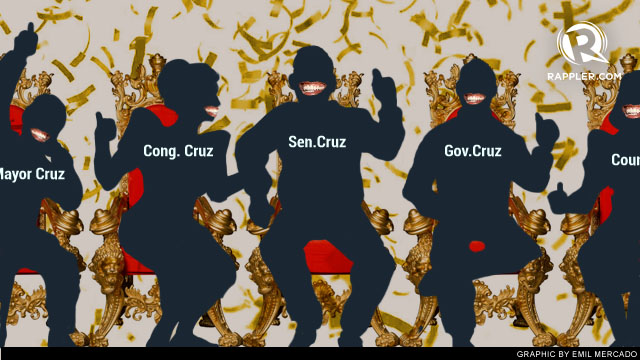SUMMARY
This is AI generated summarization, which may have errors. For context, always refer to the full article.

MANILA, Philippines – Is there hope for the passage of the anti-political dynasty bill in this Congress?
In a historic move, the House committee on suffrage and electoral reforms approved for the first time in almost 20 years a bill seeking to ban political dynasties.
Communications Secretary Herminio Coloma Jr. on Sunday, November 24 said Malacañang is keeping an open mind about backing the measure.
“Opo dahil batay nga po ito sa mga pagbabago sa lipunan na bunsod ng EDSA People Power Revolution. At atin naman pong kasalukuyang administrasyon ay tumatalima sa mga prinsipyo at reporma ng EDSA People Power,” Coloma said in an interview over state-run DZRB. (Yes, because this is based on changes in the society brought by the EDSA People Power Revolution. And our current administration adheres to the principles of the EDSA People Power.)
The statement is a small progress from Malacañang’s earlier pronouncements. In the last Congress, the Palace declined to take a stand on the measure. Back then, presidential spokesperson Edwin Lacierda said they would rather leave the decision to pass the bill to Congress.
Coloma said the proposed anti-dynasty law has long been awaited and has a clear basis in the 1987 Constitution – a product of the EDSA People Power revolution which toppled the Marcos regime and propelled into power President Benigno Aquino III’s mother, Corazon Aquino.
Article II Section 26 of the 1987 Constitution of the Philippines states: “The State shall guarantee equal access to opportunities for public service, and prohibit political dynasties as may be defined by law.”
The provision has not been fully implemented due to the lack of an enabling law. (READ: How politicians skirt anti-dynasty laws)
But Palace still has its reservations.
“Kaya malinaw naman po ang batayan niyan, ito ay kasama sa mga reporma ng EDSA People Power na nakalagay sa 1987 Constitution. Kaya lang po, kailangan ding marinig natin ang tinig ng mga mambabatas na siya namang hinalal din ng ating mga mamamayan para makita ‘yung magiging final na hugis nitong anti-dynasty bill,” Coloma said.
(That’s why its basis is clear, it is part of the reforms of the EDSA People Power under the 1987 Constitution. But we also have to hear the sentiments of the lawmakers elected by the people to see what the final shape of the anti-dynasty bill would be.)
Salient points
Under the House version of the bill, relatives up to the second degree of consanguinity will be prohibited from holding or running for both national and local offices in “successive, simultaneous, or overlapping terms.”
Meanwhile, the Senate version of the bill filed by Sen JV Ejercito, son of former president and now Manila Mayor Joseph Estrada, has a more specific definition of political dynasties.
Under Ejercito’s bill:
- Spouses and persons related within the second degree of consanguinity or affinity shall not be allowed to hold or run for any elective office in the same province in the same election.
- For national officials, spouses and persons related within the second degree of consanguinity shall be disqualified from running only within the same province where the national official is a registered voter.
- Candidates related to one another within the second degree of consanguinity including their spouses shall be disqualified from holding or running for any local elective office within the same province in the same election only.
- No person within the second degree of consanguinity shall immediately succeed his or her relative in the same position except for punong barangays or members of the Sangguniang Barangay.
Although the bill’s passage in the House committee level was described by proponents as historic, the measure will face a tougher challenge when it is tackled on the floor by a chamber that has traditionally been dominated by political clans. (READ: Only 1 in 7 lawmakers are fresh faces.) – Angela Casauay/Rappler.com
Add a comment
How does this make you feel?
There are no comments yet. Add your comment to start the conversation.